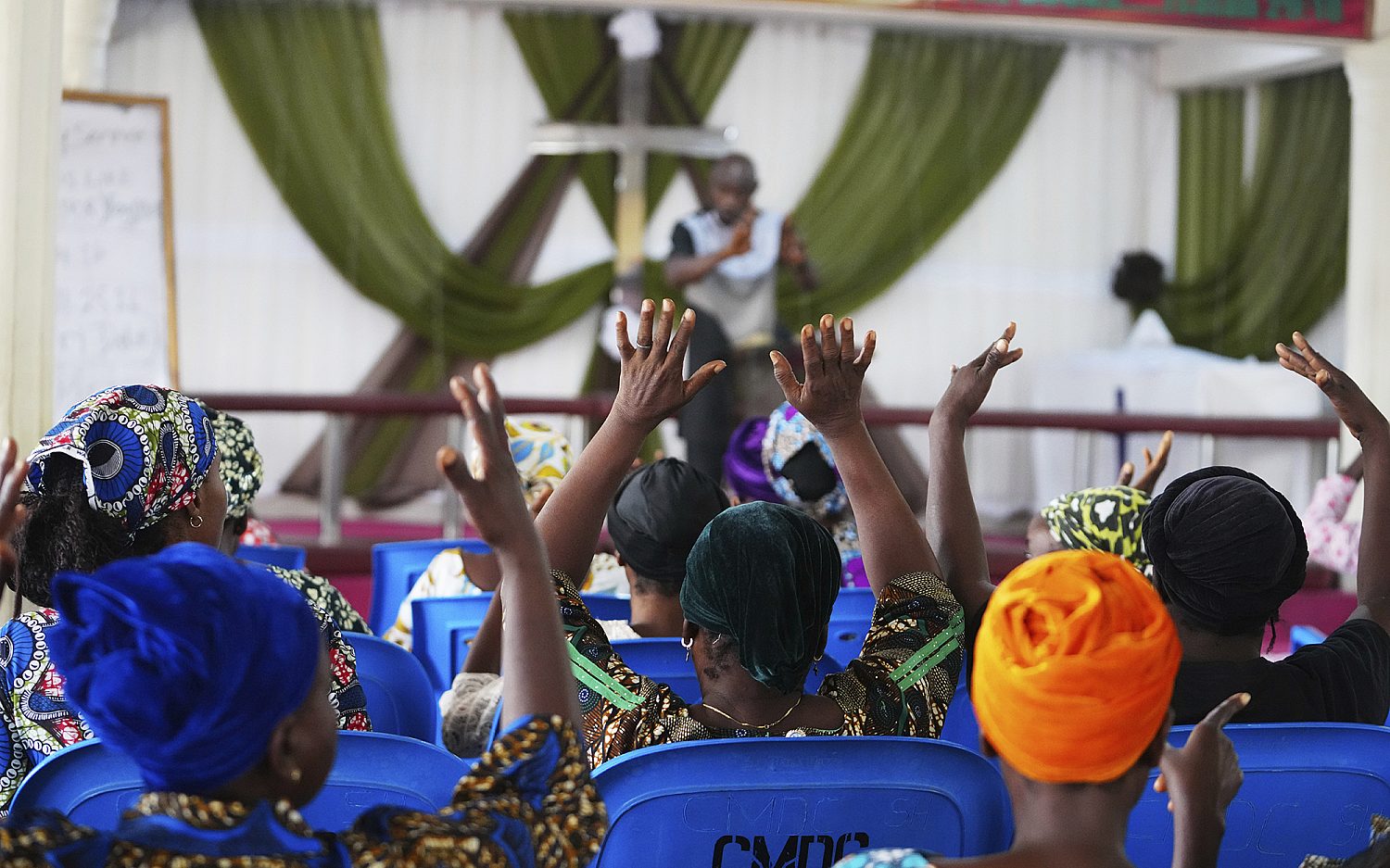One pastor's tedious defense of the First Amendment
Last week, the pastor of a small church in Gilbert, Ariz., introduced himself on the steps outside of the Supreme Court.
“I’m Clyde Reed, pastor of Good News Community Church in Gilbert, Ariz.,” he said. “I’m 82 years old and have been a pastor for over 40 years. I never dreamed my small church sign would be a topic for the Supreme Court.”
Reed’s small congregation rents temporary locations for worship services, making it all the more important to point people in the right direction.
“All we wanted to do was to use temporary signs to welcome and invite the community to our Sunday morning services,” Reed said. The church’s signs are at the center of a legal debate that pits local government against the First Amendment.
Reed’s signs are similar in size to garage sale signs with placards on wire legs that stick in the ground. But if he continued posting them, he could have faced criminal fines and even jail time under Gilbert’s sign ordinance. Attorney David Cortman with Alliance Defending Freedom saw that as a violation of freedom of speech and equal protection under the Constitution. He said the town’s code discriminated by treating signs differently based on what they said.
“Political signs may be 32 square feet, may be unlimited in number, and may be placed in the right-of-way of the entire town for five months before the election. But the church’s signs can only be one-fifth of that size, only placed in the dark of night, the night before the church service,” Cortman said.
The town’s attorney, Phillip Savrin, argued the sign rules were reasonable. Certain categories of signs—ideological ones, for example—should have more leeway in time, manner, and place. But the church sign is different. It’s in the “directional” category. And signs like those, Savrin argued, just clutter up spaces.
Justice Antonin Scalia said directions fell under free speech rights.
“I mean, ideological signs, that is just a content category, and there is as much a First Amendment right to give somebody directions as there is to speak about being green or whatever else,” he said. “Is there no First Amendment right to give somebody directions?”
The justices seemed sympathetic to towns wanting to regulate signs in some way, but tried to find a governing principle that would protect constitutional rights.
“Should the government be deciding what speech is more valuable than others?” Cortman asked. “Because that is exactly what it did in this case.”
But Justice Anthony Kennedy explained why that logic poses a problem.
“I guess you see the concern: If an affluent person wants to celebrate a birthday, he can put ‘Happy Birthday, Uncle Fred’ as many places as a political sign, and for as long,” he said.
Questioning bogged down in tiny details, such as whether a mere arrow pointing in one direction would be a directional sign, or something else.
“So they could put up an ‘ideological’ sign that says, ‘Come to our service on Sunday morning,’ but no arrow, and then they put up another sign that says, this is the arrow?” Justice Samuel Alito asked.
While the town’s attorney acknowledged the ordinance treats signs differently based on content, he said the alternative—treating all signs the same—would limit free speech even more. To prevent unsightly sign clutter, towns would have to develop one-size-fits-all rules that would apply strict limits to all signs.
Despite the humor and sometimes tedious questioning, this case has big implications going forward. Nobody denies that too many signs are unattractive and can lower property values. But the question is, how does government manage that? Many workable alternatives to the Gilbert solution exist.
For its part, the court has to provide guidance on how lower courts ought to judge sign ordinances and how much leeway the courts ought to give local governments.
If the church wins, government power to favor some speech over others would be reined in. If the town wins, that means broader power for government to disfavor certain kinds of speech.
Listen to “Legal Docket” on The World and Everything in It.
An actual newsletter worth subscribing to instead of just a collection of links. —Adam
Sign up to receive The Sift email newsletter each weekday morning for the latest headlines from WORLD’s breaking news team.





Please wait while we load the latest comments...
Comments
Please register, subscribe, or log in to comment on this article.